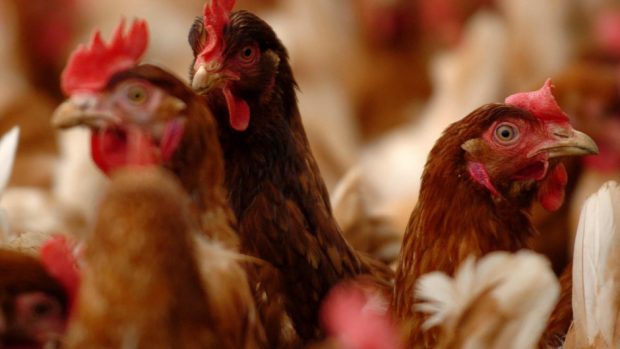Scottish Government has urged all bird keepers to maintain biosecurity measures to reduce the threat of avian influenza.
Rural Economy Secretary Fergus Ewing met with representatives from the poultry industry and retailers to discuss the current risk from bird flu.
He also discussed management options for the disease beyond February 28 – a prevention zone is in place until this date requiring all birds to be housed indoors – including the enforcement of biosecurity measures.
“We know this is a difficult time for bird keepers and retailers which is why it’s important we listen to their views on how we can best protect our valuable poultry industry,” said Mr Ewing.
“We want to protect the economic wellbeing of this industry, as in Scotland, we estimate that organic eggs output was worth about £6million to agriculture in 2016, with free-range egg output worth around £46million.”
He said government would provide updated guidance in the next few weeks, but in the meantime bird keepers should continue to practice and improve their biosecurity measures.
Scotland’s chief veterinary officer, Sheila Voas, said recommended biosecurity measures include making sure birds’ feed and water can’t be accessed by wild birds, reducing the movement of people, vehicles or equipment to and from areas where captive birds are kept, and implementing effective vermin control.
Earlier this week farm leaders from across the UK called on EU decision-makers to let them keep their free-range status if they were forced to keep their birds indoors for much longer.
The current rules allow poultry meat and eggs to be called free-range for up to 12 weeks if a compulsory housing order is in place. Producers are concerned that if the current order is extended they will lose their status and market premium after February 28.
